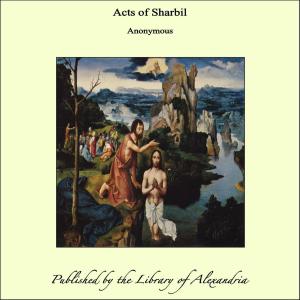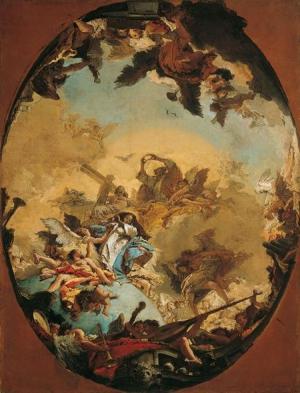| Author: | Henry Anderson Bryden | ISBN: | 9781465593467 |
| Publisher: | Library of Alexandria | Publication: | March 8, 2015 |
| Imprint: | Language: | English |
| Author: | Henry Anderson Bryden |
| ISBN: | 9781465593467 |
| Publisher: | Library of Alexandria |
| Publication: | March 8, 2015 |
| Imprint: | |
| Language: | English |
It was not until my second season’s hunting with Koenraad du Plessis that I heard of Verloren Vlei, a place I am never likely to forget. Du Plessis was a Transvaal Boer, descended, as his name implies, from that good Huguenot stock which, after the revocation of the Edict of Nantes, made its way to the Cape to replenish the Dutch settlers. The French language quickly died out in South Africa, mainly from a stern repression; yet here and there, all over that vast land, you may see at this day, in the strong and stubborn Boer breed, plain traces of the French admixture. Du Plessis bore about him very certain indications of his ancestry. He was shortish for a Boer, very dark of complexion, keen-eyed, merry, alert, vigorous and active as a cat. Nineteen years ago, the north and east of the Transvaal, and the countries just across the border, were wild and little-known lands, still teeming with game. I was wandering through this region, hunting and exploring. The gold-fever had recently broken out, and as I understood something of mining and geology, I put in a good deal of prospecting as well. It was a vagrant, delightful existence, and I thoroughly enjoyed it. Du Plessis and I met first in the north of Waterberg. I found him an excellent good fellow; he took to me; and we quickly became great friends. We trekked along the Crocodile River together, crossed it before it takes its southerly bend, and, for the whole of the dry winter season, hunted in a glorious veldt abounding in game. So excellent a comrade had I found the Boer, and so well had we enjoyed one another’s company, that we engaged to meet again the following season. Thus, at the end of July, 1876, we were once more hunting together in that wild and distant region north-east of the Crocodile. One evening—I remember it well—we were outspanned in a delightful valley between low hills, through which a pleasant stream ran—a rare thing in the prevailing drought. We had had a good hunt that day, and the flesh of a fat buffalo cow filled our stew-pot. Our oxen lay peacefully in a strong thorn kraal close at hand—for there were lions about—and our horses were tied up to the wagon-wheels; the fires blazed ruddily against the outer darkness. At one of these fires were gathered our native boys, feasting and chattering, and laughing in high good humour; at the other, Du Plessis and I sat in our wagon-chairs. We had finished our meal, and were smoking our fragrant Rustenburg tobacco and drinking our coffee; for the day had been hot, and our hunt a long and exciting one, and our thirst was still unassuaged. We were talking about gold and prospecting. The Dutchman was not over-keen about it, but he was anxious to help me. “There’s a kloof somewhere about here, Fairmount,” (that’s my name), he said, “in which I shot a white rhinoceros five years ago. I should like you to see it; I remember some natives brought me a quill of gold which they had collected up there. I think you would find it worth looking at; but this country is so broken, that I can’t for the life of me make out the exact spot. We shall hit it off presently, no doubt; but just now it’s almost as hard to find as poor Tobias Steenkamp’s ‘Verloren Vlei.’”
It was not until my second season’s hunting with Koenraad du Plessis that I heard of Verloren Vlei, a place I am never likely to forget. Du Plessis was a Transvaal Boer, descended, as his name implies, from that good Huguenot stock which, after the revocation of the Edict of Nantes, made its way to the Cape to replenish the Dutch settlers. The French language quickly died out in South Africa, mainly from a stern repression; yet here and there, all over that vast land, you may see at this day, in the strong and stubborn Boer breed, plain traces of the French admixture. Du Plessis bore about him very certain indications of his ancestry. He was shortish for a Boer, very dark of complexion, keen-eyed, merry, alert, vigorous and active as a cat. Nineteen years ago, the north and east of the Transvaal, and the countries just across the border, were wild and little-known lands, still teeming with game. I was wandering through this region, hunting and exploring. The gold-fever had recently broken out, and as I understood something of mining and geology, I put in a good deal of prospecting as well. It was a vagrant, delightful existence, and I thoroughly enjoyed it. Du Plessis and I met first in the north of Waterberg. I found him an excellent good fellow; he took to me; and we quickly became great friends. We trekked along the Crocodile River together, crossed it before it takes its southerly bend, and, for the whole of the dry winter season, hunted in a glorious veldt abounding in game. So excellent a comrade had I found the Boer, and so well had we enjoyed one another’s company, that we engaged to meet again the following season. Thus, at the end of July, 1876, we were once more hunting together in that wild and distant region north-east of the Crocodile. One evening—I remember it well—we were outspanned in a delightful valley between low hills, through which a pleasant stream ran—a rare thing in the prevailing drought. We had had a good hunt that day, and the flesh of a fat buffalo cow filled our stew-pot. Our oxen lay peacefully in a strong thorn kraal close at hand—for there were lions about—and our horses were tied up to the wagon-wheels; the fires blazed ruddily against the outer darkness. At one of these fires were gathered our native boys, feasting and chattering, and laughing in high good humour; at the other, Du Plessis and I sat in our wagon-chairs. We had finished our meal, and were smoking our fragrant Rustenburg tobacco and drinking our coffee; for the day had been hot, and our hunt a long and exciting one, and our thirst was still unassuaged. We were talking about gold and prospecting. The Dutchman was not over-keen about it, but he was anxious to help me. “There’s a kloof somewhere about here, Fairmount,” (that’s my name), he said, “in which I shot a white rhinoceros five years ago. I should like you to see it; I remember some natives brought me a quill of gold which they had collected up there. I think you would find it worth looking at; but this country is so broken, that I can’t for the life of me make out the exact spot. We shall hit it off presently, no doubt; but just now it’s almost as hard to find as poor Tobias Steenkamp’s ‘Verloren Vlei.’”















